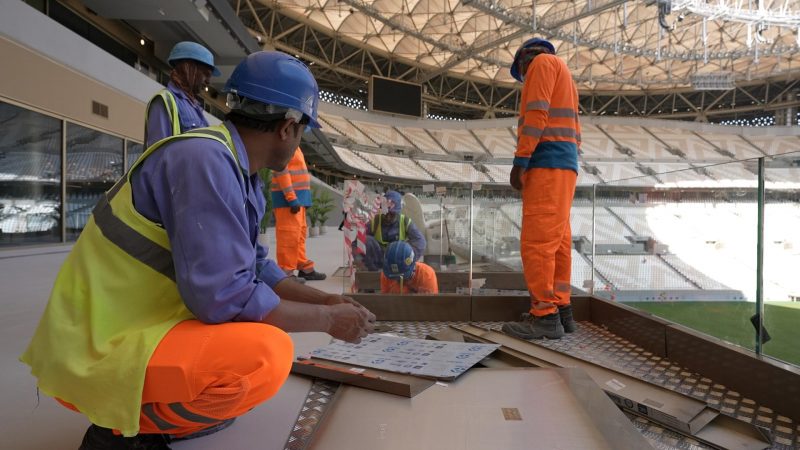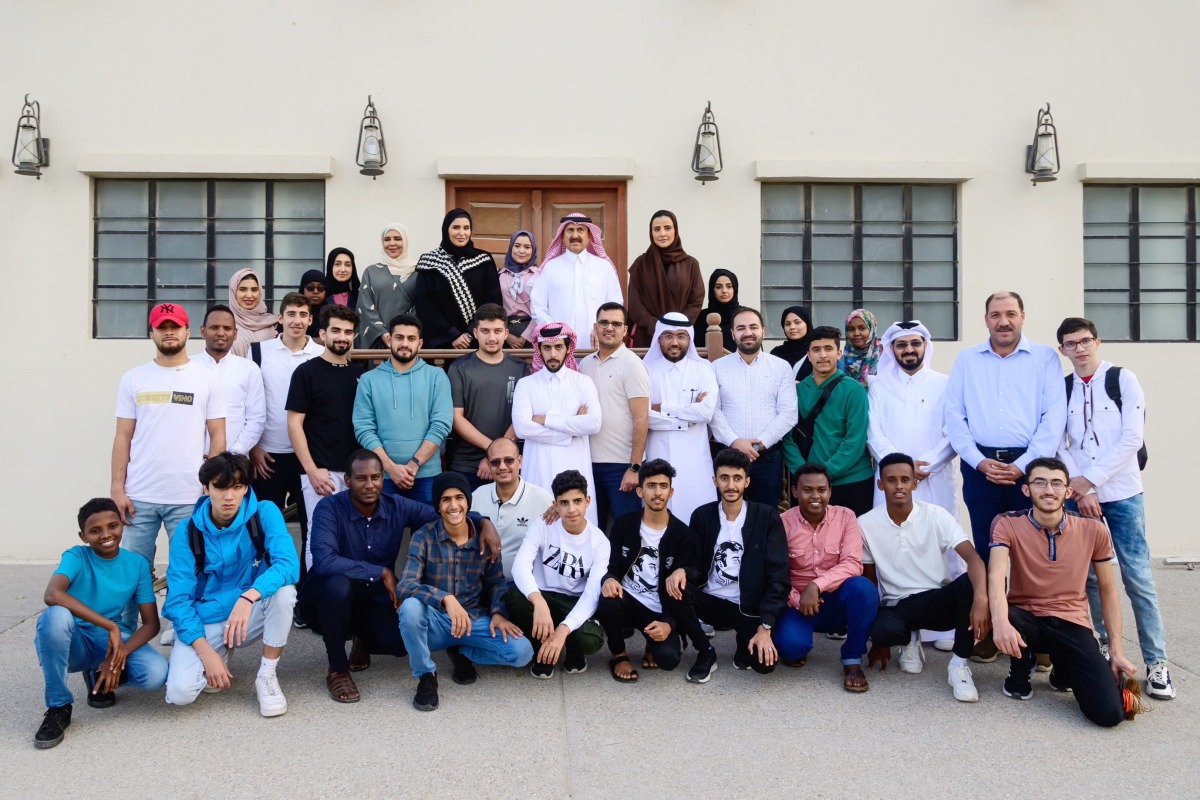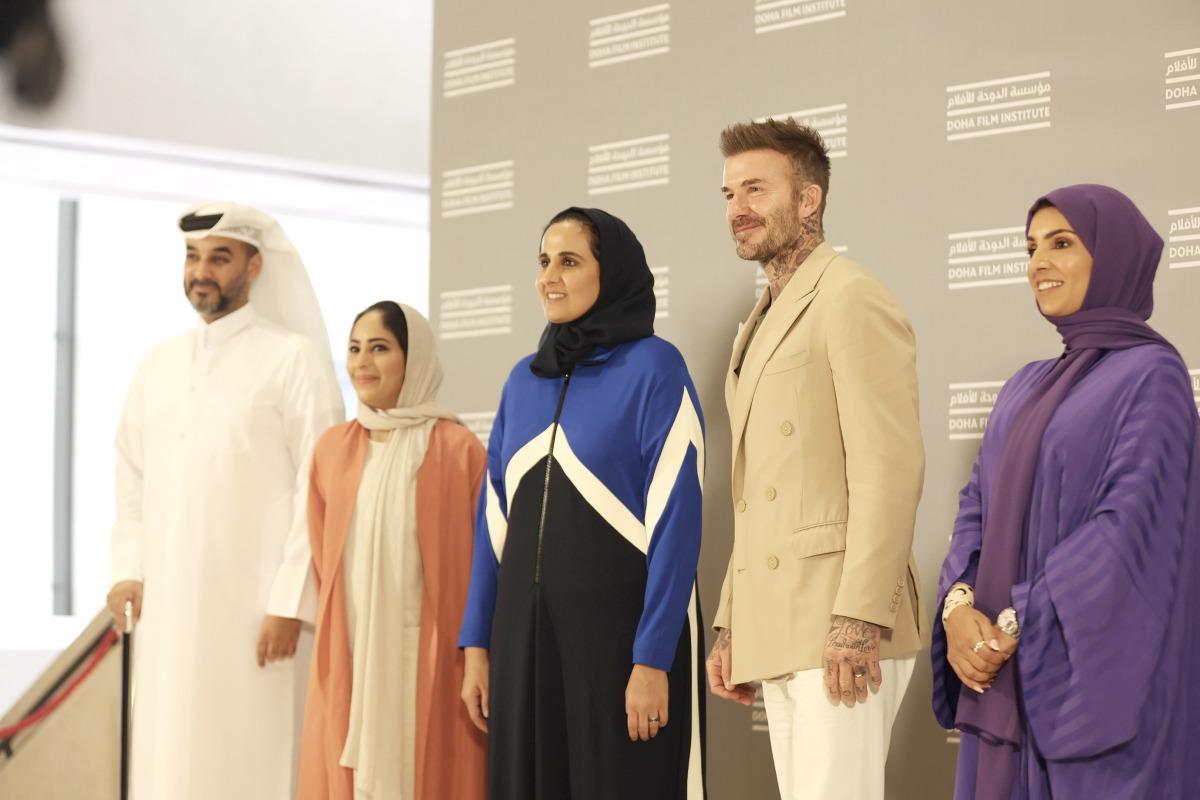Reuters reports that Qatar will step up labor inspections during the World Cup, including extra health and safety checks. This was stated in a statement by the International Trade Union Confederation (ITUC).
According to rights groups and labor unions, the month-long event—the first to be staged in a Middle Eastern country—could put employees in the hotel, transportation, and security sectors in significant risk.
“During the World Cup, the Ministry of Labour will implement a dedicated labour inspection campaign, which includes increased health and safety checks,” the ITUC said in a statement.
“The Ministry of Labour will implement a dedicated labour inspection campaign, which includes increased health and safety checks.”
Following a meeting with representatives from the International Labor Organization, the labour ministry, and unions on Tuesday in Doha, it was announced that “a directive on working time to protect workers from unscrupulous employers will also be issued”.
Mustafa Qadri, the founder of Equidem, a labour rights consultancy, told Reuters that “with tens of thousands of workers coming into the country (Qatar) just doesn’t have the capacity to monitor all of that. So the risk is really high.”
He later disclosed in a tweet that he believes that an independent body, run by workers for workers, is the only way to successfully monitor and prevent such abuses.
Meanwhile, the head of the International Trade Union Confederation claimed that Qatar has changed drastically in terms of how it treats foreign employees and is qualified to host the World Cup in 2022.
The state has made “incredible progress,” according to Sharan Burrow, general secretary of the ITUC, which claims to represent 200 million workers globally. Burrow spearheaded efforts to push Qatar to improve circumstances for migrant workers.
The comments were made at a high-level panel discussion on the second day of WISH 2022 about the findings of the report titled, ‘Promoting health and wellbeing among the migrant workforce’.
Sheikha Moza bint Nasser, Chairperson of the Qatar Foundation, participated in the discussion, during which a number of crucial issues affecting workers were covered, including wages, access to healthcare, mental health, workforce empowerment, and the function of strict law enforcement in defending workers’ rights.
It was also revealed during the talks that a crucial change driven by the Supreme Committee has targeted illicit recruitment fees collected by agents. Over 25 to 30 million workers worldwide are affected by this unlawful malpractice, which is a global misdemeanour.
The SC stated that over the course of several years, it worked closely with more than 266 contractors on their initiative to remedy this injustice. As a result, $28.5 billion was pledged by these businesses to more than 49,000 workers, of which $22.5 billion has already been returned to their pockets.
Criticism and reforms
Qatar has received a barrage of criticism for its track record in its treatment of migrant workers, with scrutiny exacerbating in recent weeks as the World Cup looms around the corner.
Over the last decade, Qatar has seen a number of historic labour reforms to address such concerns. In 2021, the country introduced the region’s first ever non-discriminatory minimum wage law, triggering praise worldwide.
In Qatar, a workweek can only go as long as 60 hours, including overtime, which must be paid at a 25% premium over regular salary. Employees are entitled to one day off per week.
In May 2021, Doha introduced a new system for workers to file complaints about public infractions of the labor code.
However, there have been a ton of fresh complaints in recent months over pay, working conditions, and a number of other issues. According to some employees who spoke to Doha News, their complaints have gone unanswered.

















Leave a Reply